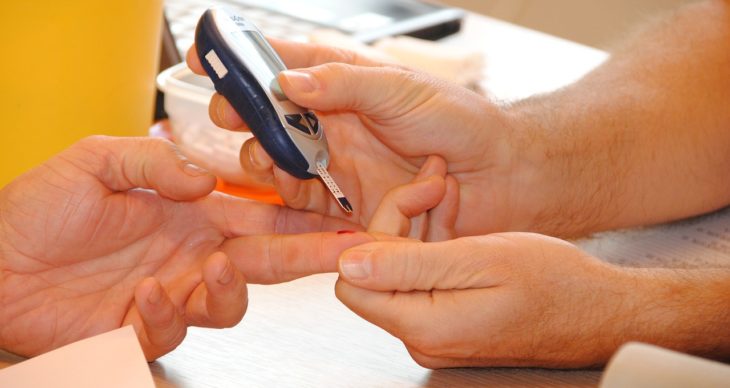According to the Centers for Disease Control and Prevention (CDC), there are now more than 100 million adults living with diabetes or prediabetes in the United States. And 25% of Americans with diabetes are age 65 and older.
So, what’s the best way for seniors to manage diabetes and still maintain an independent lifestyle? Many health professionals recommend investing in a medical alert system for diabetes to help prevent diabetic complications from becoming a life-threatening issue.
We’re going to take a look at why that is and help you find the best medical alert for diabetes.
Common Complications of Diabetes
Did you know that in the United States, diabetes is now the 7th leading cause of death? Many doctors attribute this to an increased risk of heart attack due to the higher blood pressure levels that go hand-in-hand with diabetes.
But there is another diabetes complication that can be even more deadly for senior citizens. It’s been found that diabetes can also lead to frequent tripping and falling. And each year, fall injuries put 2.8 million seniors in the ER with hip fractures or brain trauma.
You might be wondering how diabetes leads to falls in older Americans. It’s because some of the symptoms experienced by diabetics result in decreased mobility and foot sensitivity, which significantly increases the chance of stumbling and falling. We’ve gathered up some of the most common diabetes health concerns.
Poor Circulation: Diabetes impedes blood flow, especially to the legs and feet, which can lead to trouble healing and hardened blood vessels. This results in an increased risk of falling and a longer timeframe for injuries to heal.
Vision Problems: Loss of eyesight is one of the top complications of diabetes and can lead to frequent stumbling and tripping due to poor depth perception. This very often causes falls and serious injuries in diabetics, especially those over 65 years in age.
Neuropathy: Nerve damage is a common side effect of diabetes. Diabetic neuropathy can cause the inability to feel an increase in temperature or pain levels in the feet. This leads to numbness in the feet, which often results in missed steps and trouble climbing stairs.
Foot Ulcers: Because diabetics have a loss of sensation in the feet, they often suffer from foot ulcers, which is the result of not realizing shoes are rubbing painfully when walking. Foot ulcers frequently become infected and often cause imbalance and falls.
Tips to Reduce the Risk of Falls in Diabetic Seniors
Fall-related injuries can have a serious impact on senior quality of life and overall health. That’s why it’s so important to do whatever you can to prevent falls from happening in the first place. If you have an elderly loved one or are over the age of 65, you should take a look at these tips to help stop falls before they happen.
Supportive Shoes: Look for shoes that fit well and give you the support you need to help prevent loss of feeling in the feet and increase mobility.
Regular Eye Exams: Having your eyes checked every six months is a great way to ensure that diabetic vision changes won’t cause dangerous falls.
Remove Household Hazards: All clutter, electrical cords, and other items that could cause you to trip should be safely tucked away. You might also want to install grab bars in the bathroom.
Increase Bone Strength: Talk to your doctor about starting a daily supplement regimen that includes calcium and vitamin D to help keep your bones strong.
How a Medical Alert System Can Help Diabetics
Do you or an elderly loved one have diabetes? If so, you want to do everything you can to make sure you don’t spend your time worrying about life-threatening complications of the disease. It’s crucial to be able to know you can get medical assistance when and where you need it.
That’s why medical alert systems are so helpful for diabetics. You can stay independent and still know that help is just the press of a button away if you suffer a heart attack or serious fall due to diabetes complications. Many of the best medical alert devices offer 24/7 monitoring and automatic fall detection at very reasonable rates.
Want to know more about medical alert for diabetes devices? You should take a look at our in-depth buyer’s guide to the top-rated medical alert systems. You’ll get all the facts you need to choose the right medical alert device for you or your loved one. And we’ll even show you how to find low-cost options that won’t break the bank!
